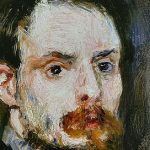5 Facts You May Not Know About Yaacov Agam
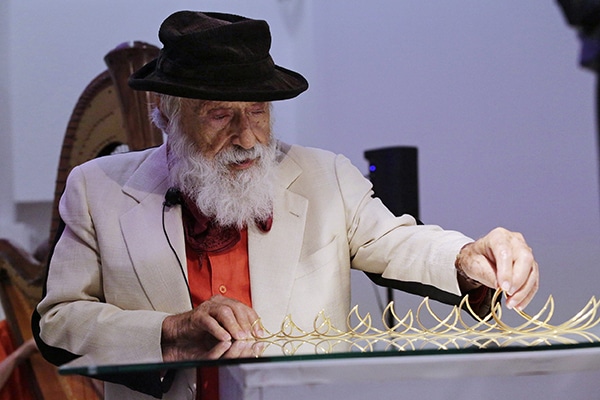
Yaacov Agam manipulating his “Beating Heart” sculpture
Israeli artist Yaacov Agam is a groundbreaking pioneer of the kinetic art movement. As such, art lovers around the world are familiar with his transformative artwork and art installations found around the globe.
However, what collectors may not know is that there are many fascinating aspects of Agam’s life and career that might surprise longtime fans of his work.
Whether you’re an Agam collector or just a casual admirer, here are five facts you may not know about this multi-faceted artist.

A series of photographs showing how Yaacov Agam’s art changes as the viewer moves past it. The work featured here is a polymorph relief titled “Visual Prayer for Peace, Hope and Tolerance – The Star of David, Gold.”
1. Agam Attended Surrealist Meetings with Salvador Dali
In 1951, Agam moved to Paris despite not knowing French. While making a living as an art teacher, he met Robert and Nina Lebel. Robert was an art expert who wrote about Surrealism, and introduced Agam to Surrealist artists.
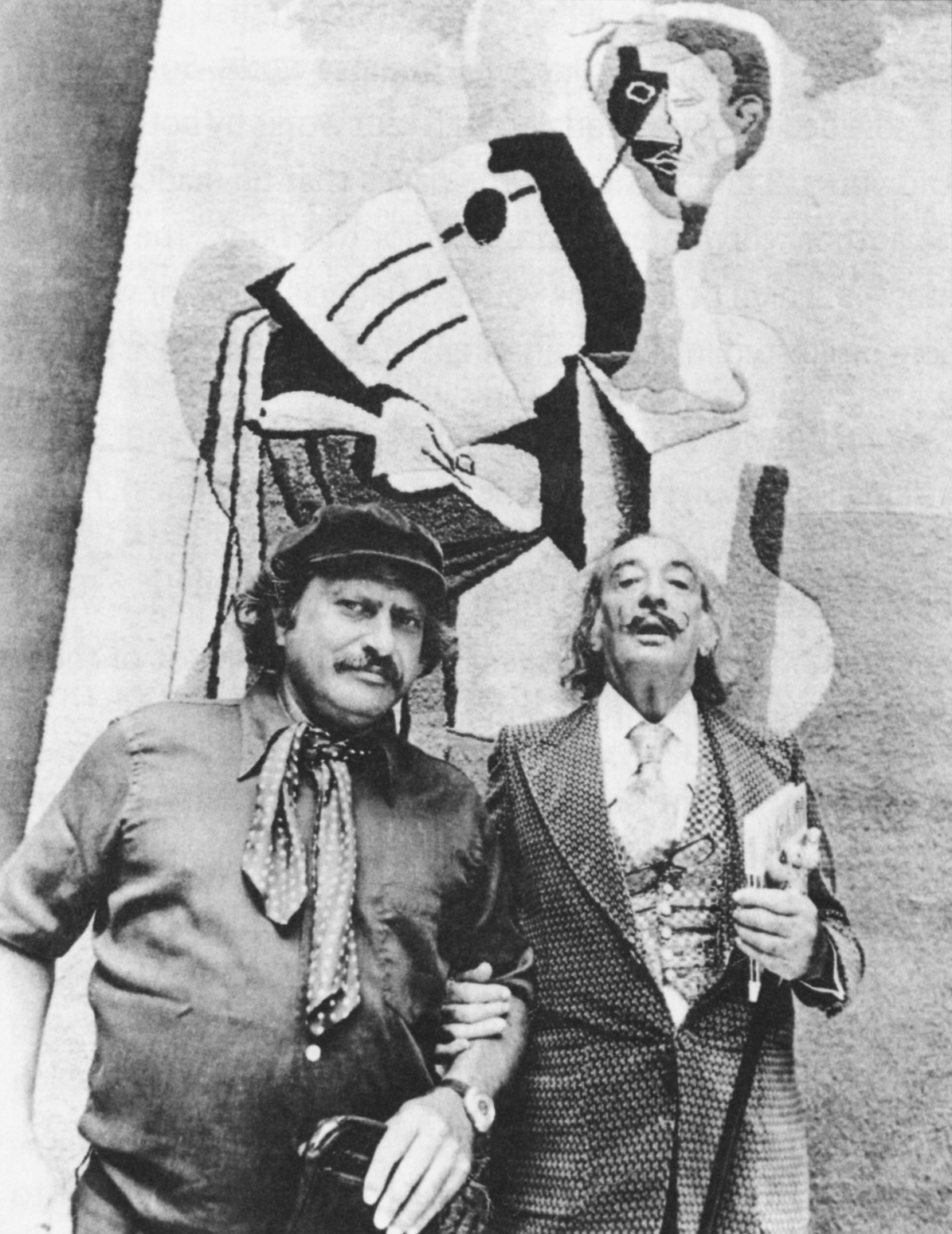
Yaacov Agam and Salvador Dali (Photo courtesy of “Agam: Beyond the Visible” by Sayako Aragaki)
Agam attended regular meetings with Surrealist artists where he was introduced to the likes of Salvador Dalí, Roberto Matta, and Wilfredo Lam. As Sayako Aragaki notes in her book, “Agam: Beyond the Visible,” the Surrealists were among Agam’s first fans:
“It is not surprising that the Surrealists, who proclaimed the liberation of imagination, who were anti-rationalist in their thinking, and sought a true expression of thought, should have understood Agam’s work which challenged and overturned the accepted notion of art as a fixed image.”
2. A Special Award Was Created to Honor Agam
In 1963, Agam participated in the São Paulo Biennale, an international art exhibition. Judges were so impressed by Agam’s art that they wanted to present him with an award, but weren’t sure how to categorize his artwork.
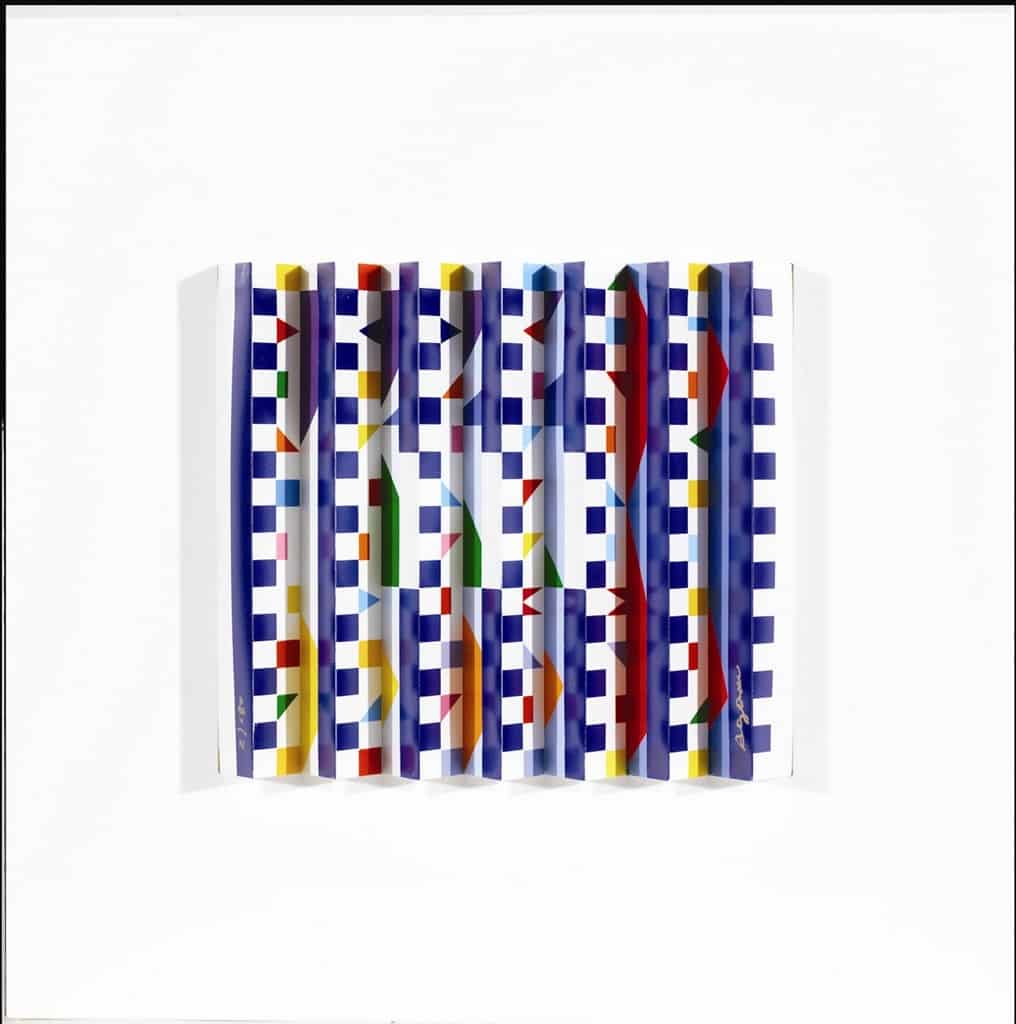
“Sky View Deep” (2007), Yaacov Agam
The judges couldn’t decide whether to consider Agam’s artwork a painting, sculpture, or something entirely new, so they created the “Artistic Research” award specially for him—a rare honor that helped catapult Agam to international fame.
3. Agam Devised an Ingenious Multi-Stage Theater Concept
Ever the curious artist, Agam began toying with the concept of a multi-stage theater in the 1960s. Agam’s concept was born from a similar theme to his multi-dimensional art—the idea that a person cannot see and experience everything around them.
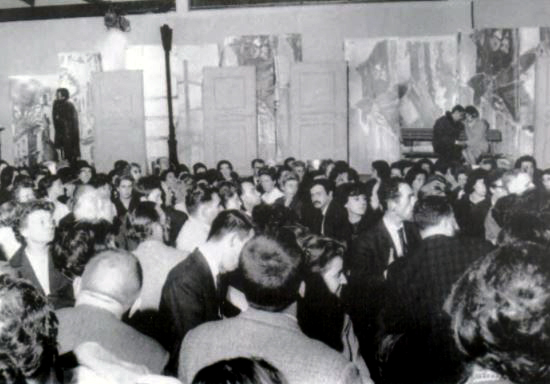
Agam’s multi-stage concept in action in Dijon, France in 1965 (Photo courtesy of “Agam: Beyond the Visible” by Sayako Aragaki)
In his theater concept, the audience is surrounded by four stages with situations playing out simultaneously on all of them. In doing so, the audience could never experience the play in its entirety, but by turning around in movable seats, they could selectively view the play’s multiple phases.
Agam’s theater concept became a reality in 1965 during a theater festival in Dijon, France. The performed play (written by Michel Parent) told a fictionalized story about the pilot who dropped the atomic bomb on Hiroshima. Amazingly, the audience was able to hear and understand everything despite multiple stages presenting different aspects of the pilot’s life at the same time.
4. Agam Created a Visual Learning Program
To encourage the development of visual skills and visual memory in students, Agam worked with a group of educational experts in the 1980s to create the Agam Visual Cognition program.
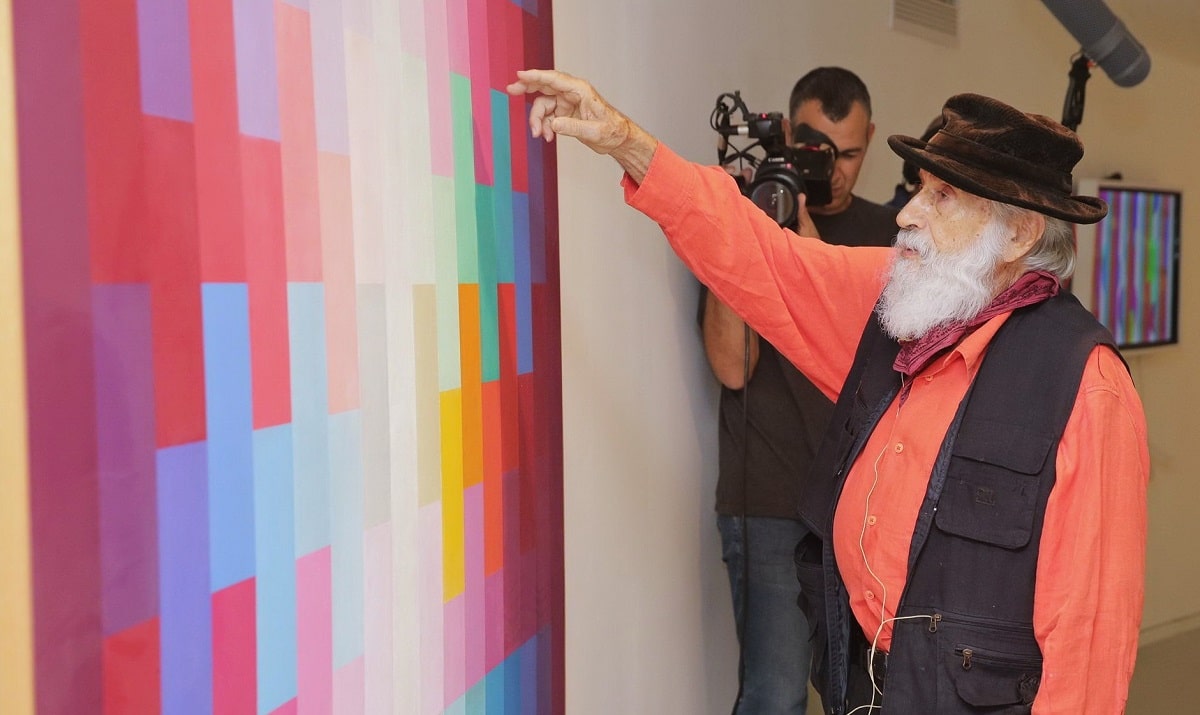
Yaacov Agam giving a tour of the Yaacov Agam Museum of Art (YAMA) in Rishon LeZion, Israel
The 36-unit course is designed for preschool students and focuses on improving visual thinking to improve cognitive and emotional development. The program makes use of flash cards, transparencies, and plastic shapes of various sizes and colors.
“Visual memory is very important; by training it, we can enormously increase the ability to learn and the development of visual thinking,” Agam told ISRAEL21c.
In 1996, Agam received the Jan Amos Comenius Medal from UNESCO for the program.
5. There is a Museum Dedicated to His Art
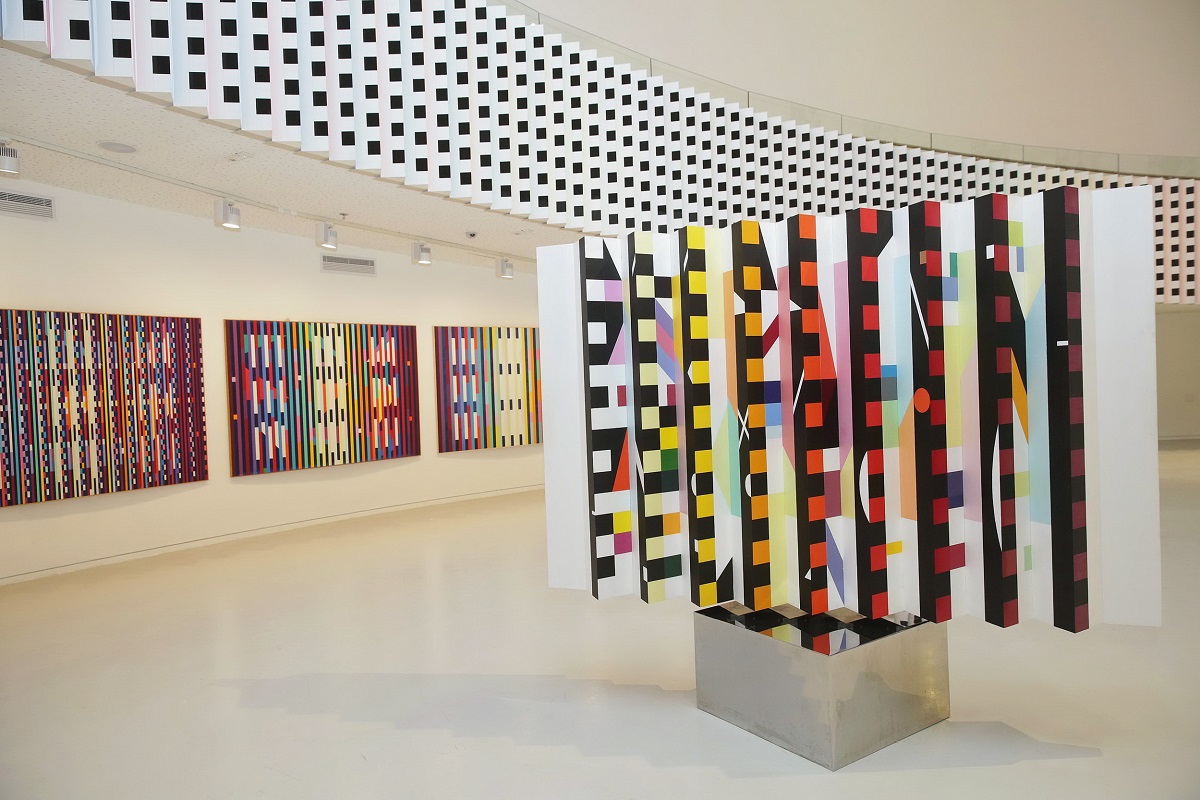
The interior of the Yaacov Agam Museum of Art
The Yaacov Agam Museum of Art opened to the public in 2017, making Agam one of the few in history to have the honor of having a museum built bearing their name.
With the museum officially open, Agam joins an elite list of artists who have a museum bearing their name. These include Dalí, Marc Chagall, Claude Monet, Rembrandt van Rijn, Pablo Picasso, Vincent van Gogh, and Norman Rockwell.
“I can’t think of an artist who deserves this kind of recognition more than Agam,” said Albert Scaglione, Founder and CEO of Park West Gallery. “He has been so influential to generations of Israeli artists and his work needs to be experienced in person.”
The museum is located in Rishon LeZion, Israel, and was funded both privately and publicly, emphasizing the admiration people have for Agam and his art. See their Instagram account for museum updates.
If you are interested in collecting the art of Agam, register for our exciting weekly online auction or contact our gallery consultants at (800) 521-9654 ext. 4 or sales@parkwestgallery.com.
Related Articles





